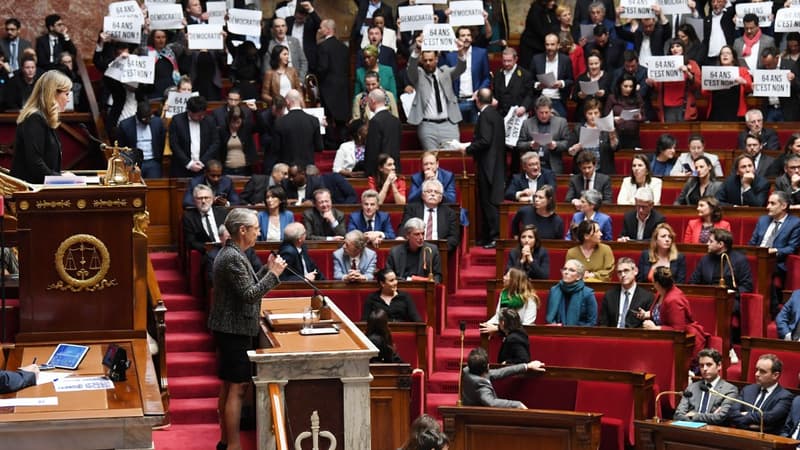After long weeks of uncertainty, the executive opted to use article 49 paragraph 3 of the Constitution to approve the contested pension reform. This is the hundredth time in the history of the Fifth Republic that this tool has been used.
BFMTV.com explains how it works and what it’s used for.
• What does the article say?
Article 49.3 establishes that: “The Prime Minister may, after deliberation by the Council of Ministers, compromise the responsibility of the government before the National Assembly. In this case, this bill will be considered approved, unless a motion of censure, presented within the next forty-eight hours, is voted on.”
This article of the Constitution, therefore, allows the government to adopt a text immediately and without submitting to the vote of the deputies. When activated, it leads directly to the suspension of the debates in the National Assembly on the reform.
• How do censure motions work?
When a government uses 49.3, it is said to be responsible. Indeed, only one procedure can frustrate the executive: the motion of censure. It makes it possible to reject the adoption of the text and, above all, to overthrow the government.
It must be presented within 24 hours of the entry into force of this article and obtain the signature of one tenth of the members of the lower house, that is, 58 deputies. In order for it to be adopted later, it is necessary to gather the votes of the majority of the deputies of the National Assembly, that is, 289.
If such a motion were adopted, the government would have to resign and the pension reform would be rejected. Conversely, without a motion of censure, the text is considered adopted.
• When can it be activated?
Since the constitutional reform of July 23, 2008, the use of 49.3 has been restricted, in particular because many consider it undemocratic. Thus, it can only be used once per parliamentary session outside of finance bills (PLF) or social security financing bills (PLFSS), as is the case with the present retirement reform.
The Prime Minister can only resort to it after deliberation by the Council of Ministers. This Thursday, a Council of Ministers was thus urgently convened, after several meetings between the President of the Republic, the Government and leaders of the majority political groups.
The use of 49.3 often appears as an admission of weakness before Parliament and as a tool to assert the primacy of the executive. It is in a way the last resort of the Government, which has tried until the last moment to avoid this situation.
• Why did the government use it on Thursday?
In some cases, the executive may resort to forced approval to quickly move forward with the adoption of a law and bypass debates in the National Assembly. In the current legislature, where the presidential camp has only a relative majority, the use of 49.3 above all allows not to risk the non-approval of a bill.
“The emerging voice gap does not allow us to jeopardize this fundamental reform,” the prime minister’s entourage told BFMTV.
The executive needed the support of the LR deputies to aspire to approve this text. Elisabeth Borne tried to convince them, but several of them had announced in advance that they would not vote for this reform.
Source: BFM TV


